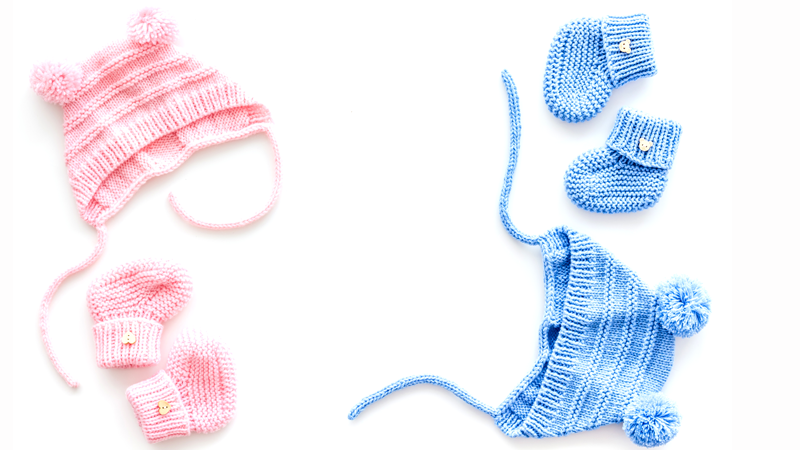Living in Hong Kong and balancing a career and children, our postnatal expert MELINDA HUNT knows how overwhelming the prospect of having a baby can be. Here, she declutters the wealth of information out there to provide a general, practical and chronological pregnancy checklist to get you started.
First Trimester (0 to 13 Weeks)
Confirm your pregnancy with your doctor. Calculate your due date and share the news with your partner. Celebrate and let the news sink in!
- Check your health cover plan and maternity options.
- Book your first prenatal check-up for eight to ten weeks. Choose your obstetrician and start considering hospital preferences. Private or public? Birth doula or midwife?
- Start reviewing your health and lifestyle choices. Abstain from alcohol, and, if you smoke, it’s time to give up! Discuss this with your doctor along with diet, stress levels and exercise regime. Also discuss taking a prenatal vitamin.
- Talk to your obstetrician about prenatal checks and tests, and about the birth itself. Discuss a vaginal birth, C-section and pain relief options. Research your family history and inform the doctor if there are any genetic issues you need to address.
- Make sure you’re up to date with vaccinations. Discuss with your doctor which vaccines you can have while you’re pregnant.
- Get a full dental check-up
- Decide on when and how you’re going to share your pregnancy news with family and friends. This is such a personal choice; some parents wait until after the first trimester.
- Record your growing belly by taking photos each month. Buy a maternity journal to record your feelings and experiences.
- Talk to your employer about maternity leave and whether the workplace adequately accommodates for breastfeeding mothers.
- Make a budget! Review your finances with your partner and when you plan to return to work (if at all). Decide where your monetary priorities lie.
- Hire a maternity nurse or postnatal carer if you think you’ll need extra help after the birth. From 12 weeks is a good time to start interviewing and considering your postnatal care options. Night nurses are often booked months in advance, so plan ahead!
- Study pregnancy tracker apps and baby websites. Buy a couple of iconic books such as What To Expect When You’re Expecting and The Baby Book.
- Brace yourself for pregnancy symptoms, morning sickness, mood changes and body changes.
- Educate yourself on breast feeding. Consider a consultation with a lactation consultant or go to a La Leche League meeting to get the lowdown on breastfeeding. Tip: Read The Womanly Art of Breastfeeding, a godsend for any breastfeeding mother.
- Buy or borrow maternity wear. As you grow, consider your maternity wear options. (Everyone is different with this; some go straight into maternity clothes.) Tip: Have a bra fitting as soon as you start to feel uncomfortable. Expect your size to vary during the pregnancy.
Second Trimester (14 to 28 Weeks)
- The second trimester is a good time to write your list and start shopping for your baby basics and nursery items. Tip: Be organised and don’t leave shopping until the last minute. Your little sweetie could come early!
- Research consumer reviews and talk to other parents about important and expensive items such as the cot, change table, car seat and pram. Order items well in advance – some brands take up to eight weeks to ship. Also, check for consumer recalls on baby items.
- Organise a baby shower gift registry. Tip: Make a separate list of baby items you’d like as gifts. If you know the sex of the baby, you may want to share this news.
- Set up your little one’s nursery towards the end of the second trimester (around 28 weeks). This allows for delivery delays and assembling furniture. You can tweak and add special touches during the last few weeks of your pregnancy.
Third Trimester (28 to 40 Weeks)
- From 28 to 32 weeks is a good time to attend some prenatal and infant CPR classes, where you’ll gain indispensable information about the birth itself and basic baby care. Tip: Book your classes well in advance as they tend to fill quickly.
- Take a hospital tour early on if you’re weighing up options that will determine where you give birth. Otherwise, six to eight weeks before your due date is a great time to tour the hospital and familiarise yourself with facilities, meet midwives, and review birthing and labouring options. Tip: Be sure to write a list of all your questions and bring it with you to the hospital. This is the perfect time to ask!
- If you’re thinking about cord blood banking, do your research and talk to your doctor. Leave this no later than four to six weeks before your due date.
- Plan a babymoon before your baby arrives. It’s a great time for some couple bonding and relishing the quiet moments. The second trimester is an appropriate time, when you’re most likely feeling better if you’ve had morning sickness. Tip: Don’t leave a babymoon too late – you don’t want to end up giving birth overseas! Some airlines won’t let you travel after 36 weeks.
- Hold a baby shower. Usually between 30 to 32 weeks is a good time, well in advance of your due date.
- Create a flexible birth plan stipulating your preferred birthing and pain relief preferences and have it ready with your hospital bag.
- Pack your hospital bag by approximately 35 to 36 weeks. Pack one for your partner and leave it by the door.
- Install the car seat four to six weeks before the due date just in case you give birth early.
- Research and interview a paediatrician in readiness for follow-up baby checks and vaccinations.
- Choose a birth announcement and start gathering addresses and phone numbers. Discuss which family and friends will be informed first.
- Take a basic baby care class! Learn about changing nappies, bathing, SIDS, swaddling, feeding, settling and soothing. When you arrive home from hospital, you want to feel somewhat prepared. It’s a daunting prospect, so empower yourself! Tip: Read Happiest Baby on the Block by Dr Harvey Karp – it’s easy to read, fun and informative.
- If you’re planning to breastfeed, you may want to hire a hospital-grade breast pump. This can involve being on a wait-list a couple of weeks before your due date.
- Schedule a haircut, manicure and pregnancy spa a couple of weeks before your due date. Take a whole day to indulge yourself and zone out!
- As your due date approaches, use the two weeks to provision your pantry and freezer with ready-made meals and snacks. Shop online for groceries. This is a nice time to potter and nest at home while awaiting the arrival of your tiny bundle. Tip: Book some home help to iron, clean and tidy up the house.
- Stock up on books, magazines and box sets while you put your feet up and wait for the first signs of labour. Note: This is not the time to throw a dinner party or redecorate! Take time to read up on what to expect when you bring your little bubba home.
- Practice relaxation and the meditation techniques you learnt in baby classes.
- Make a plan of attack for going into labour. Think about transport and a backup person in case your partner can’t make it.
- Narrow down your baby name list!
- Sleep and nap as much as you can. You’ll need to draw from this sleep bank over the coming weeks; soon you’ll be running on adrenaline as your body switches to survival mode.
- The early weeks after birth may be a blur but the excitement and love you feel will be undeniable. There will be good and bad days, so don’t be afraid to ask for help and talk about how you feel. Good luck!
Melinda Maternity is a bespoke postnatal care and night nurse service. Melinda brings first-hand experience and professional advice on topics from feeding and settling to basic baby care. 5177 7240 | melindamaternity.com
See more useful tips in our Mums & Babies section:
Birth & babies: your questions answered
10 things you might not know about babies!
Decking out your nursery: trends and tips
This article first appeared in the Spring 2020 issue of Expat Living magazine. Subscribe now so you never miss an issue.







